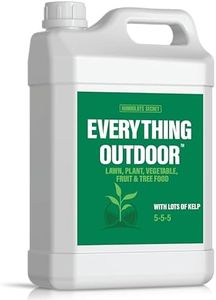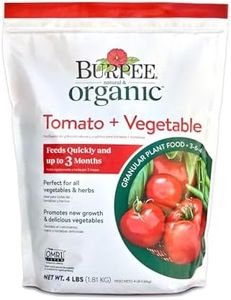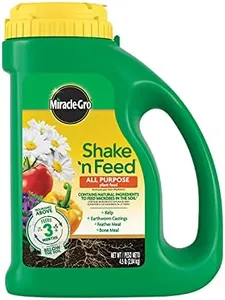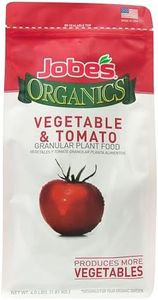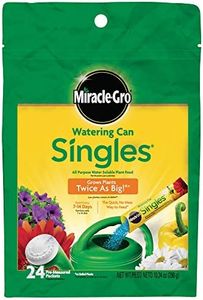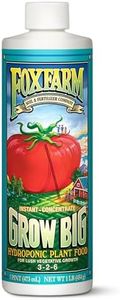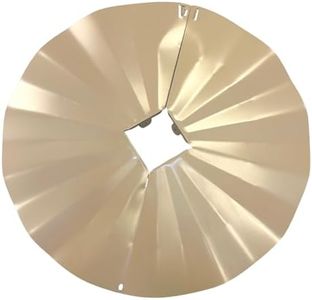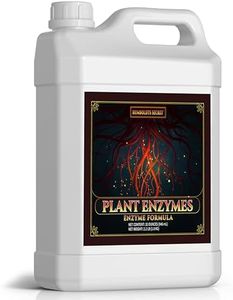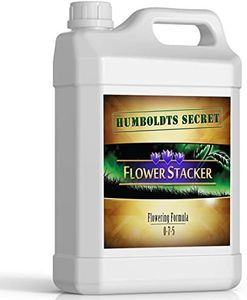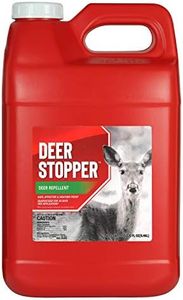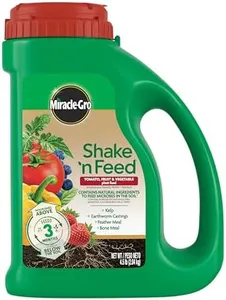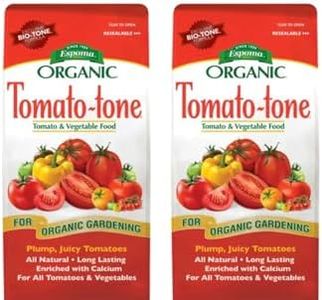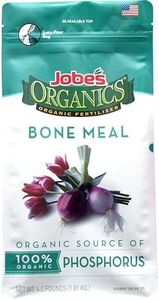10 Best Vegetable Fertilizers 2026 in the United States
Winner
Our technology thoroughly searches through the online shopping world, reviewing hundreds of sites. We then process and analyze this information, updating in real-time to bring you the latest top-rated products. This way, you always get the best and most current options available.

Our Top Picks
Winner
Burpee Organic Tomato & Vegetable Granular Plant Food, 4 lb
Most important from
20772 reviews
Burpee Organic Tomato & Vegetable Granular Plant Food is an excellent choice for those looking to grow their vegetables organically. One of its strengths is the long-lasting nutrient release, which can feed your plants for up to three months. This is particularly helpful as it reduces the need for frequent reapplication.
The granular form is easy to apply, and it releases nutrients immediately, ensuring your plants get the essential nutrients they need right away, while also providing a steady supply over time. The product is OMRI listed, which means it is certified for organic use, appealing to environmentally-conscious gardeners.
With its balanced N-P-K ratio, it’s designed to support plant health and productivity. Burpee's long-standing reputation in the gardening community adds to the trustworthiness of this fertilizer. If you are looking for a dependable, easy-to-use, and organic fertilizer for your vegetable garden, this product is a strong contender.
Most important from
20772 reviews
Miracle-Gro Shake 'N Feed All Purpose Plant Food, For In-Ground and Container Plants, Feeds for up to 3 Months, 4.5 lbs.
Most important from
16878 reviews
Miracle-Gro Shake 'N Feed All Purpose Plant Food offers a convenient solution for both in-ground and container plants, providing nourishment for up to three months. One of its notable strengths is the inclusion of vital micronutrients, which can help produce stronger and more vibrant plants.
Additionally, its versatility makes it suitable for a variety of plant types, including flowers, vegetables, and herbs, whether grown indoors or outdoors. This product is easy to apply by evenly distributing the granules onto the soil and working them into the top few inches, followed by regular watering to activate feeding.
Another advantage is that it contains natural ingredients, which can appeal to those looking for more organic gardening options. However, it's worth noting that while this fertilizer is classified as slow-release, which means it gradually feeds plants over time, it may not be as effective for gardeners needing immediate results.
Most important from
16878 reviews
Jobe’s Organics Granular Garden Fertilizer, Easy Plant Care Fertilizer for Vegetable Gardens and Tomato Plants, 4 lbs Bag
Most important from
18177 reviews
Jobe’s Organics Granular Garden Fertilizer is designed primarily for vegetable gardens and tomato plants. It uses an NPK ratio of 2-5-3, providing more phosphorus relative to nitrogen and potassium. This balance supports healthy root development and fruit production, which is ideal for tomatoes and many vegetables. Being an organic fertilizer, it contains no synthetic chemicals and is certified by the USDA for organic gardening, making it a strong choice for gardeners who want to avoid synthetic additives and prefer natural options.
The granules release nutrients more slowly than quick-release fertilizers, reducing the risk of burning plants and minimizing nutrient runoff. This slow-release nature means you apply it every 4-6 weeks, helping maintain consistent feeding throughout the growing season without constant reapplication. It is suited to a range of soil types, but gardeners should check their soil’s pH to ensure the best nutrient uptake.
This fertilizer is well-suited for home gardeners growing vegetables and tomatoes who want an easy-to-use, organic product that supports steady growth and good yields. Those needing quick nutrient boosts or specific micronutrient adjustments might consider supplementing with additional products.
